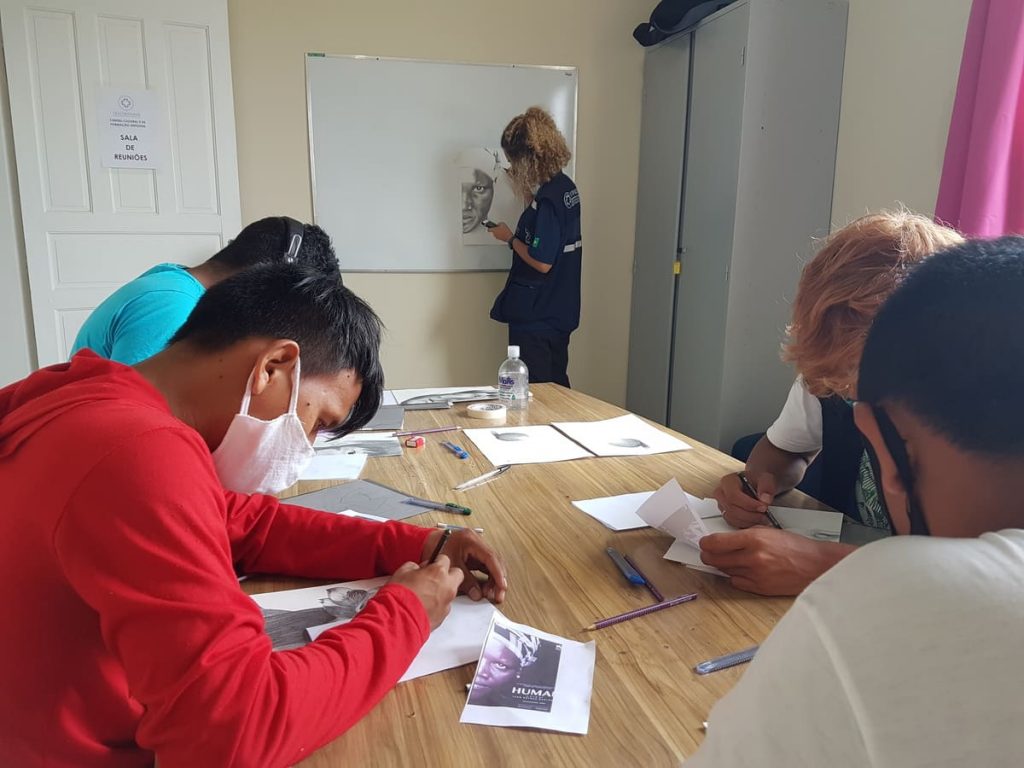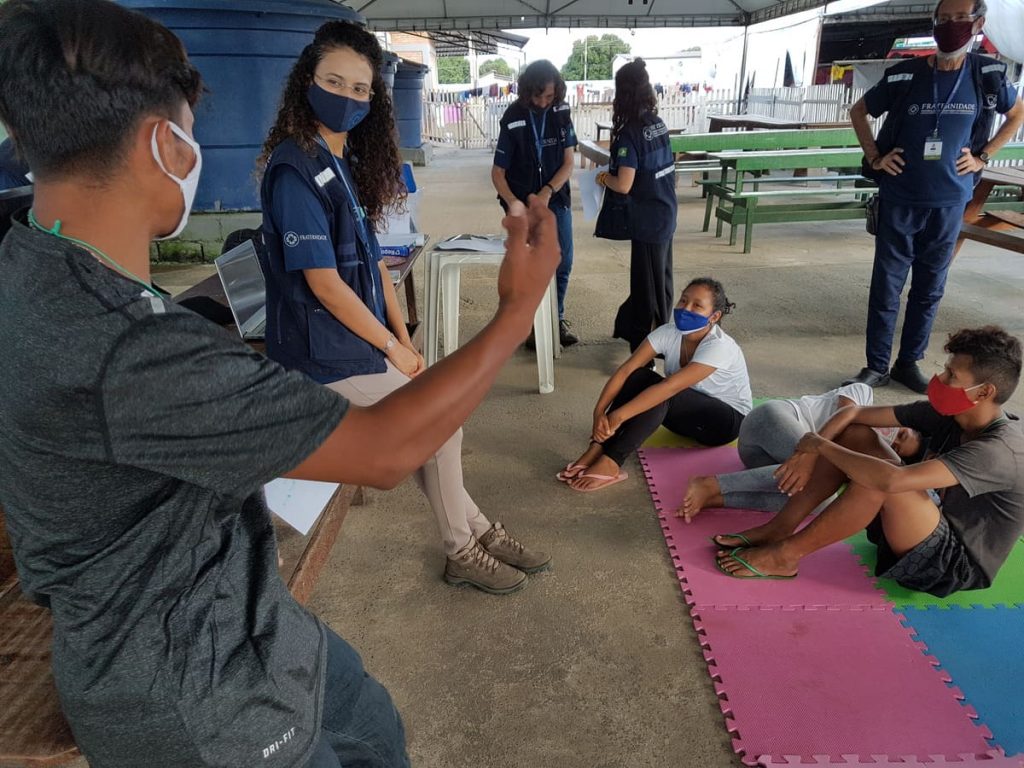The political and spiritual leader, Mahatma Gandhi, showed in practice that it’s possible to build a more just society through non-violent means.
In honor of this figure, the United Nations (UN) instituted October 2, the day of his birth, as the International Day of Non-Violence.
The Fraternity – International Humanitarian Federation (FIHF) follows similar principles of that leader, who died in 1948.
Especially among adolescents and young people, the traumas resulting from the conflict situations of becoming a refugee from a country in crisis, demand special preparation for the team so that inner strength may be built for creating a peaceful life.
“For this reason, in the Art-Education in Emergencies Sector, we work on building peace in chaotic situations. We offer activities that provide greater contact with oneself and with others, with conversation rounds about different subjects such as self-knowledge, self-confidence, resilience and empathy,” comments Sister Lourdes, a consecrated monk of the Grace Mercy Order.
There are activities with games and recreation, music and rhythm, agro-ecology activities in contact with nature, all part of the round of activities developed by the Sector so that the relationship of the young people with the world in which they live may be based on fraternal fellowship.
What these services offer is in line with one of the messages of Gandhi, who said:
“Absolute non-violence is the absolute absence of harm to all living things. Non-violence, in its active form, is having a good disposition for all that is living. It is love in its perfection.”
“The building of inner values can help adolescents face and overcome challenging situations in life and help people to become stronger, resilient and creative,” adds the missionary.
On the xenophobic acts sometimes directed at Venezuelan refugees in Brazilian territory, the result of preconceptions and ignorance, the Humanitarian Fraternity (FIHF) also seeks to take action so that there may be a harmonious local integration of the refugees.
As one of its actions, it offers training and professional courses through the Cultural Center for Indigenous Training, under management of the Humanitarian Fraternity (FIHF) with partner organizations, through the support of the United Nations Agency for Refugees (UNHCR).
“Training people for the job market and for life is something important that helps in this process of integration and of peaceful coexistence,” emphasizes Sister Maria de Lourdes.








